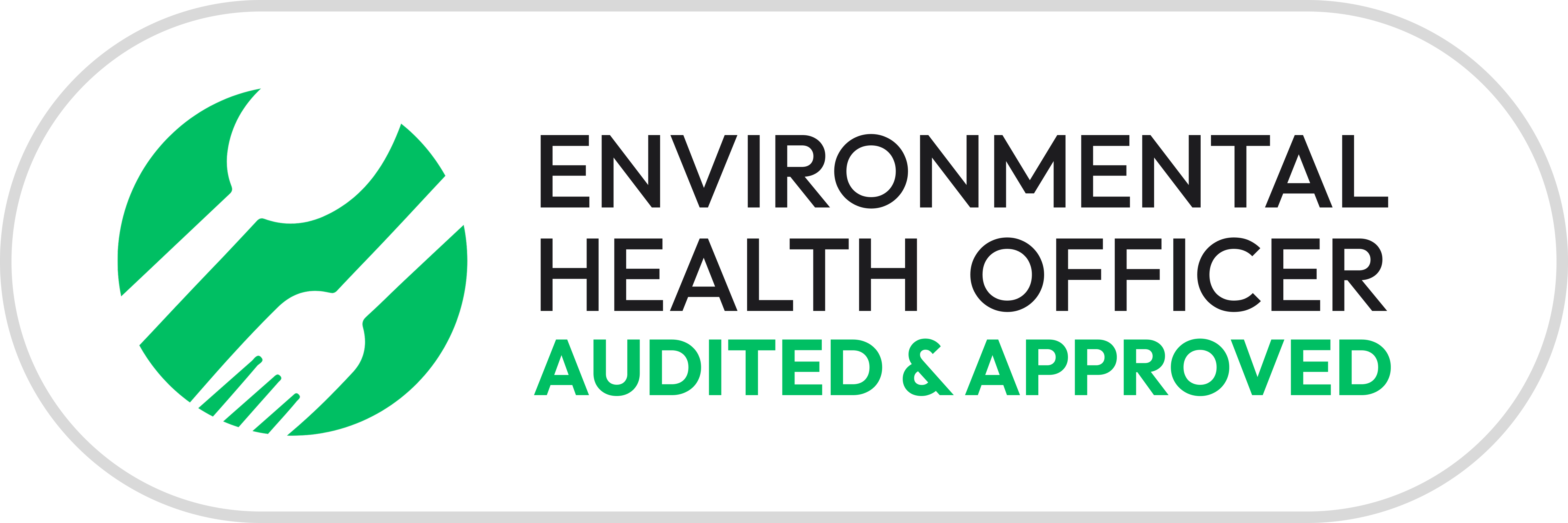%201.png)


This entry-level course introduces the basics of food hygiene in a catering environment. It’s designed for staff who work around food but do not handle it directly, such as cleaners or wait staff.


This course provides essential food hygiene and safety knowledge for anyone who prepares, cooks, serves, or handles food in any setting. It’s suitable for those working in Catering, Manufacturing, Early Years environments, Retail, and Schools.


An advanced food hygiene course covering management-level responsibilities and legislation. It's intended for supervisors, managers, and business owners across food sectors.


Focused on manufacturing settings, this course covers basic hygiene awareness for non-food-handling roles. It’s ideal for maintenance workers or those supporting production without direct food contact.


This course builds awareness of food allergens, cross-contamination risks, and labelling laws. It’s suitable for anyone in food service, from kitchen staff to front-of-house teams.

Accepted by Local Authorities

Meets UK / EU Legal requirements

Instant digital certificate

Instant access; outstanding support




Yes, as part of Online CPD Academy, all of our courses are accredited by relevant awarding bodies.
No, a food hygiene certificate is not legally required by UK law. However, food handlers must be trained in food hygiene in a manner appropriate for their work. Employers are responsible for ensuring proper training is provided.
While not a legal requirement, having a food hygiene certificate is strongly recommended when selling food from home. It shows commitment to safety and builds consumer trust. You’ll also need to register with your local authority.
You can obtain a food hygiene certificate by completing an online or in-person course offered by recognised providers. After passing the assessment, you'll receive a digital or printable certificate.
Businesses must follow the Food Safety Act 1990 and ensure food is safe to eat. Staff should receive adequate training in food hygiene relevant to their role, though certification itself isn't mandatory.
Various training providers, both online and in-person, issue food hygiene certificates. These must comply with UK food safety standards and offer recognised levels such as Level 1, 2 or 3.
Costs vary depending on the course level and provider. Online Level 2 courses usually range between £10 and £30. Higher levels or in-person training may be more expensive.
Yes, some organisations and councils offer free food hygiene training, especially for volunteers or the unemployed.
While certificates don’t expire by law, it's generally recommended to refresh your training every 3 years to stay up to date with best practices and legislation.
Level 1 is basic training for those not directly handling food. Level 2 is ideal for food handlers, while Level 3 is for supervisors or managers overseeing food safety in a business.
Yes, as long as the course meets UK food hygiene standards, an online certificate is valid and widely accepted by local authorities and employers.
Each provider sets its own pass mark, typically around 75% or higher. You may be allowed multiple attempts at the final quiz.
Your certificate should include the training level, provider’s name, completion date, and assessment confirmation. Always choose accredited providers recognised in the UK.
Yes, most kitchens require staff to have a Level 2 food hygiene certificate, especially if you’re preparing or serving food.
Although not legally required, having a food hygiene certificate helps demonstrate that you follow safe food practices, which is especially useful when handling breakfast or snacks for guests.
Level 3 is designed for supervisors, managers, and business owners who are responsible for managing food safety systems and ensuring staff compliance.